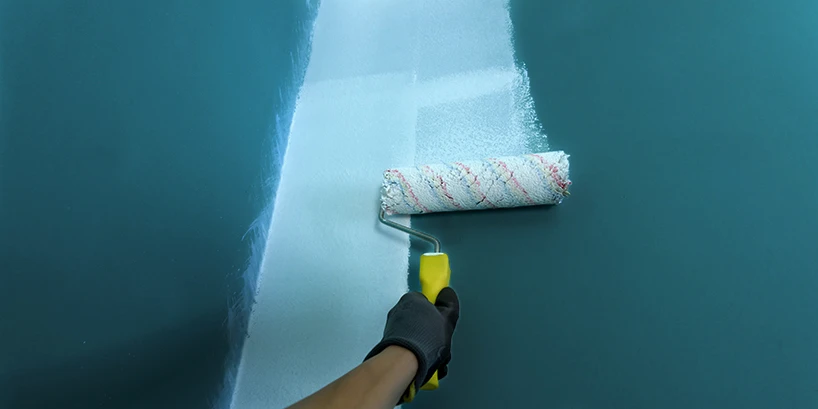How to Paint Over Dark Colors

If you have been avoiding the task of repainting one or more rooms in your home because you are worried about covering dark wall paint, don't despair. While the process may be a bit trickier and more labor-intensive than the average paint job, it's not as hard as you may think. The experts at Five Star Painting are happy to share their tips on how to paint over dark colors to help you achieve great results.
Gather Your Supplies
As with any type of project, assembling all the supplies you need beforehand can save you time and frustration. Covering dark wall paint requires several materials including the following:
- High-quality rollers with a thick nap for rough walls, or a thin nap for smooth surfaces
- 220-grit sandpaper or a sanding block
- Clean, lint-free cloths
- Cleaning solution
- Scraper
- Spackle
- Putty knife
- Painter's tape
Prep the Walls
In order for the new coat of paint to properly adhere, your walls should be completely clean.
1. Use a long-handled broom or duster to remove any cobwebs near the ceiling line and wipe down your walls if needed using your cleaning solution.
2. Remove any loose, peeling paint with the scraper and sand the affected area(s) until smooth.
3. Fill nail holes or small dents with the spackle and allow to dry before sanding.
4. After sanding, use a clean cloth or tack cloth to remove the resulting dust from your walls and baseboards before proceeding.
Pick Your Primer
There is no shortage of options when it comes to primer, and while you may be tempted to choose a darker hue to cover up your dark paint, it will produce less than favorable results. White primer is the best choice when painting from dark to light, while a gray-hued primer is ideal when painting from light to dark. Choose a high-quality primer that contains more pigments and binders than bargain brands for superior coverage and avoid purchasing an all-in-one paint and primer for this type of project. Another option is tinting the primer, so if you are going from a dark burgundy to a light gray, you’d get a primer that is light gray.
Apply the Primer
Be prepared to apply one coat of primer and allow it to dry before you apply your new wall color.
Paint!
Choose a high-quality paint when covering dark wall paint, which contains more pigments and binders than a bargain brand. The darker the original wall color, the more coats of paint and primer it will take to cover it up (red being the hardest due to the nature of the pigment). Be prepared to apply two coats of paint, allowing sufficient time to dry in between coats.
Need Reinforcements?
Trying to DIY paint over dark colors can be overwhelming, especially when it comes to cutting in properly, along with allowing for the time needed to let multiple primer and paint coats dry thoroughly. Need to call in reinforcements? Schedule a free estimate from a Five Star Painting team near you.
Complete the Look
One of the best ways to highlight your new, lighter paint color is by hanging framed prints, paintings, or photographs up on your walls. In order to avoid marring your newly painted surfaces or damaging the drywall, it is important to use the right tools and accessories and to make sure that you measure right the first time. Shelving is also a great way to display treasured objects without using up valuable floor space and to help keep your items out of harm's way. To learn more or if you have any questions for our service professionals, contact Five Star Painting today!
 Click to call
Click to call




